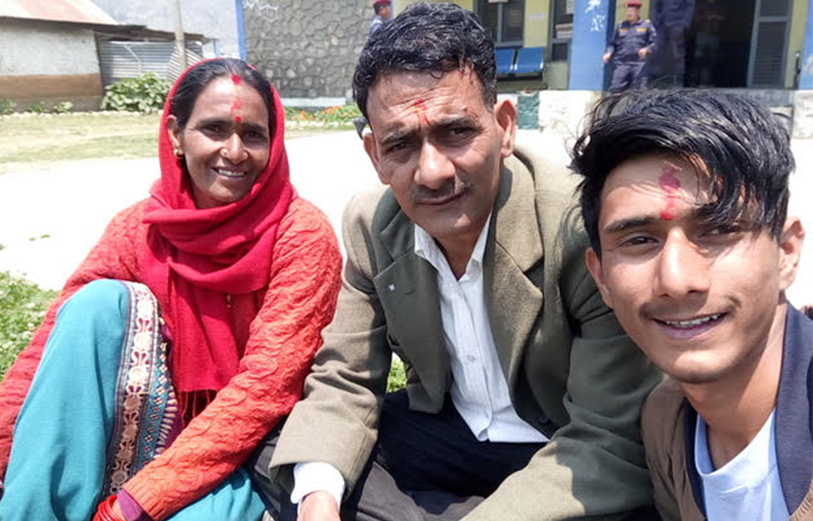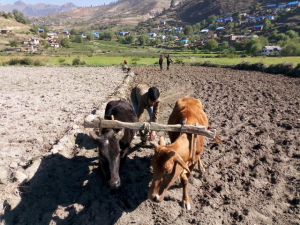Our youngest medical student is Santosh. We asked him to tell us a bit more about his reasons to want to train to become a doctor, and also about what life is like at home in his remote village in Jumla. Here is his account:
“My name is Santosh Upadhayay and I am 19 years old.
My scholarship has completely changed my life, as it has made me focus on studying, and also helped my family to become free of economic burden. I feel that my scholarship was my life changer.
Now a bit about myself:
My village is called Simkhada; it is located in mid-western development region of Nepal, Karnali zone, Jumla district. I have two sisters they are unmarried and their ages are 22 and 25 respectively and both of them are in Jumla . My parents work in the fields; we have some beehives and also some trees. The main source of income in my house is agriculture. We plant rice, wheat, maize, barley and millet and sell them. We have some beehives, and the honey extracted is also sold. We have also some walnut trees , from which we sell the walnuts.
Before coming to Kathmandu, I studied in Jumla the local secondary school near my village. The total number of rooms in my house is 6-7, although, some are for cattle. We have restricted access to electricity on a schedule; for example out of 3 days one of those would be lighting and the other two days we wouldn’t have any power. The electricity supply in our house is from the local hydroelectric source, but there is no wi-fi service. We use a tin oven and firewood for cooking meals. I like to play football, volleyball, cricket and other local games, which are of more fun, for example cattle grazing, hunting with my friends and swimming in the river.
It takes more than one hour to reach the hospital by foot. From our village, we usually travel to the hospital by walking, on a stretcher, and sometimes by an ambulance. The furthest that patients have to walk to receive healthcare in my district is over a day of non stop walking.
The main reason for me wanting to be a doctor is that where I come from, people die of simple diseases like diarrhoea, because, they don’t have access to a health service. It is the lack of proper health services and awareness that encouraged me to become a doctor and serve in the rural areas of Nepal. After I complete my graduation, I will become not only a doctor, but also a person with social responsibility, and my childhood dream is to go to a rural area of Nepal and serve the people living there. I will help the poor people as much as I can by providing a health service. I hope I will be the inspiration for my society. I will make the people aware about the health service, and I will always be there in an emergency.”


